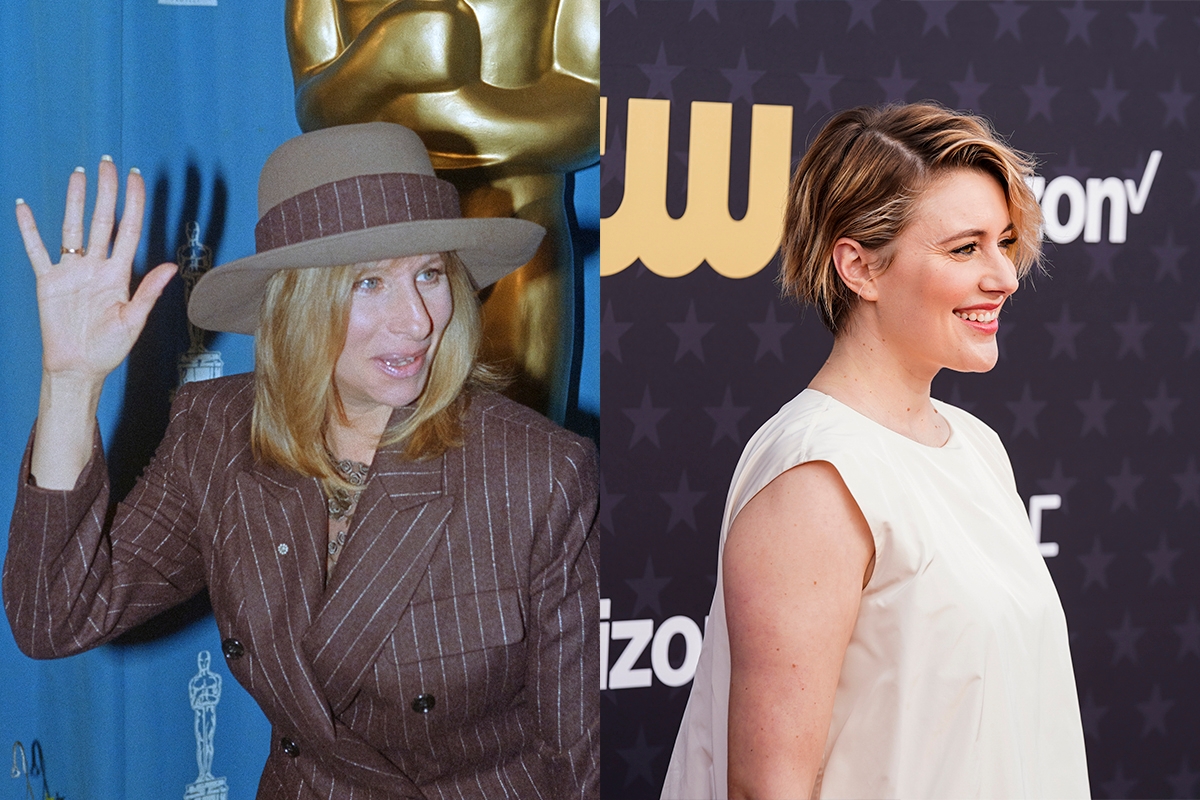In a surprising turn of events for many, Greta Gerwig, the director of the mega-blockbuster “Barbie,” was not nominated for best director at the upcoming Oscars — though the film was nominated for best picture.
For comedian, actress and TV maker Julie Klausner, that choice from the Academy brought back memories of another great Oscar snub — that of Barbra Streisand, who, despite achieving filmmaking history with “Yentl” as the first woman to star, direct, produce and write a feature film, was not nominated for best director that year, nor for her 1992 blockbuster “The Prince of Tides,” which was, like “Barbie,” nominated for best picture.
Streisand has won two Oscars, first for “Funny Girl,” and second for her song “Evergreen,” which she wrote for “A Star Is Born.” She was the first woman to win for best original song, but she was never acknowledged for her work as a director.
On Instagram, Klausner shared a clip from the 1992 Oscars — featuring a musical number from host Billy Crystal in which he pointed out the Babs snub — with the caption “Love Greta Gerwig.”
That night on the award stage, Crystal sang a parody of “Rain on My Parade,” which Streisand made iconic in “Funny Girl,” a role she won best actress for (in a tie with Audrey Hepburn), with lyrics from the great Jewish composer and lyricist Marc Shaiman:
“Don’t tell me not to make this film I’ve got to
If someone takes a flop it’s me and not you
I’ve simply got to make the film ‘The Prince of Tides’
I’ll bring this book to the screen
Guess who will play Lowenstein
I’ll tell Nick Nolte stand there,
Tights on my legs. nail and hair
Seven nominations on the show
Did this film direct itself?”
After that plaintive question, Crystal paused while the camera zoomed to a smiling, nodding, and perhaps a little rightfully smug Streisand. Shaiman said seeing Babs react to his lyrics was “a gay boy’s dream.”
Klausner juxtaposed this clip on her Instagram with a sampling of Barbra singing a medley of her song “I’m Still Here” and “Don’t Rain on My Parade” at the MGM Grand in 1994, where she sings:
Unlike Gerwig, Barbra Streisand also starred in “The Prince of Tides” as Jewish psychologist Susan Lowenstein, but just like Margot Robbie in “Barbie,” she wasn’t nominated for best actress, either.
Streisand’s co-star, Nick Nolte, was nominated for his role in the movie, however, which makes the parallels even more uncanny, as Ryan Gosling was nominated for the role of Ken in “Barbie.” Just like Robbie’s co-star America Ferrera, the only female actor to receive an Oscar nod for “The Prince of Tides” was actress Kate Nelligan, who played Nolte’s sister in the movie. Nolte also won a Golden Globe for the role (Babs was nominated for best director at the awards, and did win a Golden Globe for directing “Yentl”).
And while “The Prince of Tides” didn’t make box-office history the way “Barbie” did, it was both a commercial and critical success, grossing a total of $135 million worldwide and becoming one of the top earning films of that year. It was also the second year in a row when a female director’s film got the best picture nomination and not the best director one — it happened with Penny Marshall’s “Awakenings.”
Streisand’s snub years earlier for “Yentl” did rankle, drawing ire from both feminists — who protested outside the Oscars that year — and the studio heads who believed Streisand deserved to be acknowledged for her decade and a half of work on making the movie a reality, as well as her work behind the camera. Friends of the star even reported that she wondered if the decision not to nominate her was truly about her work on the film, or simply disdain for Streisand herself. Some posited that it was Isaac Bashevis Singer, the author of “Yentl the Yeshiva Boy,” the short story the movie is based on, who panned Barbra’s work on the movie which contributed to the cold shoulder from the Academy (in contrast, Pat Conroy, the author of “The Prince of Tides,” worked closely with Streisand on the movie and was in awe of her vision and tenacity).
When the Directors Guild of America chose not to acknowledge Babs’ work on “Yentl” for its best director award earlier that year, she said, “Maybe in the next few years with more women directing they’ll get used to us.”
It’s been more than 30 years since that moment and Billy’s song on the Oscars stage and, well, as they say, plus ça change, plus c’est la même chose. In 2024, as in 1992, it’s the same deal. History-making women keep getting passed over at the Oscars, even when they make a movie all about the very real gender inequities that decision seems to exemplify.








